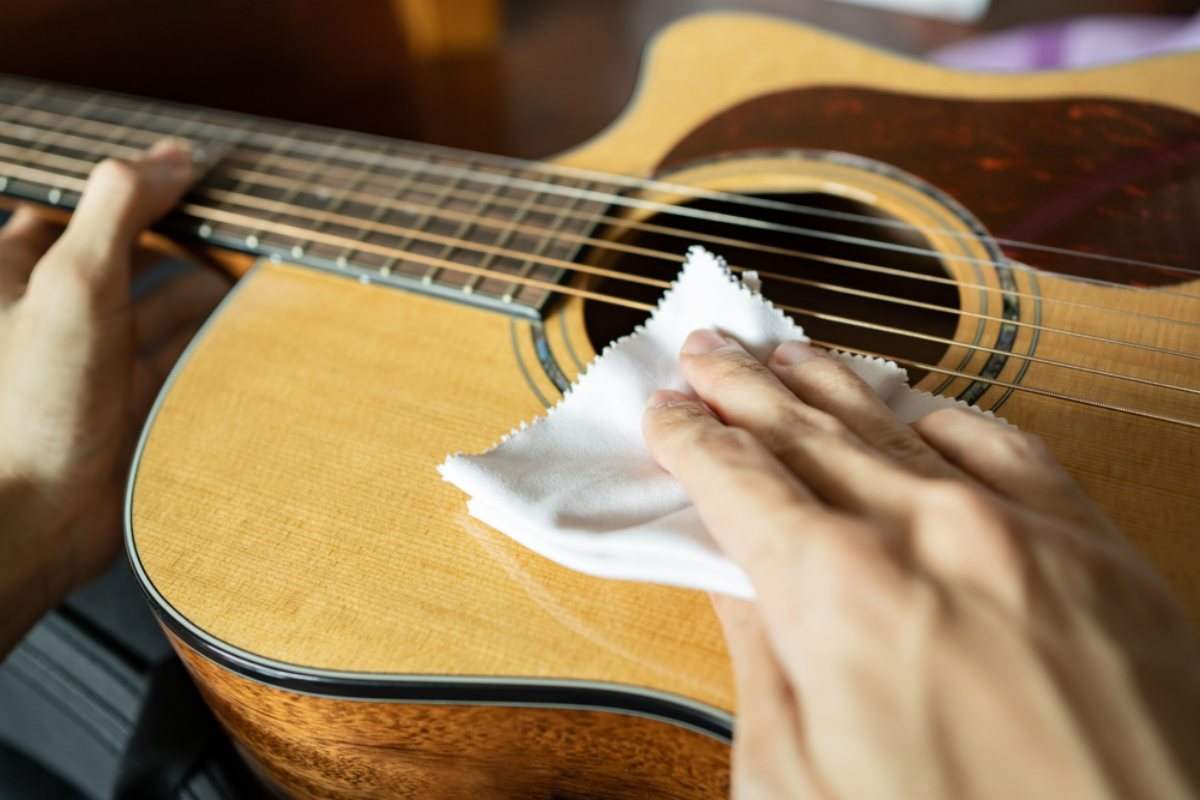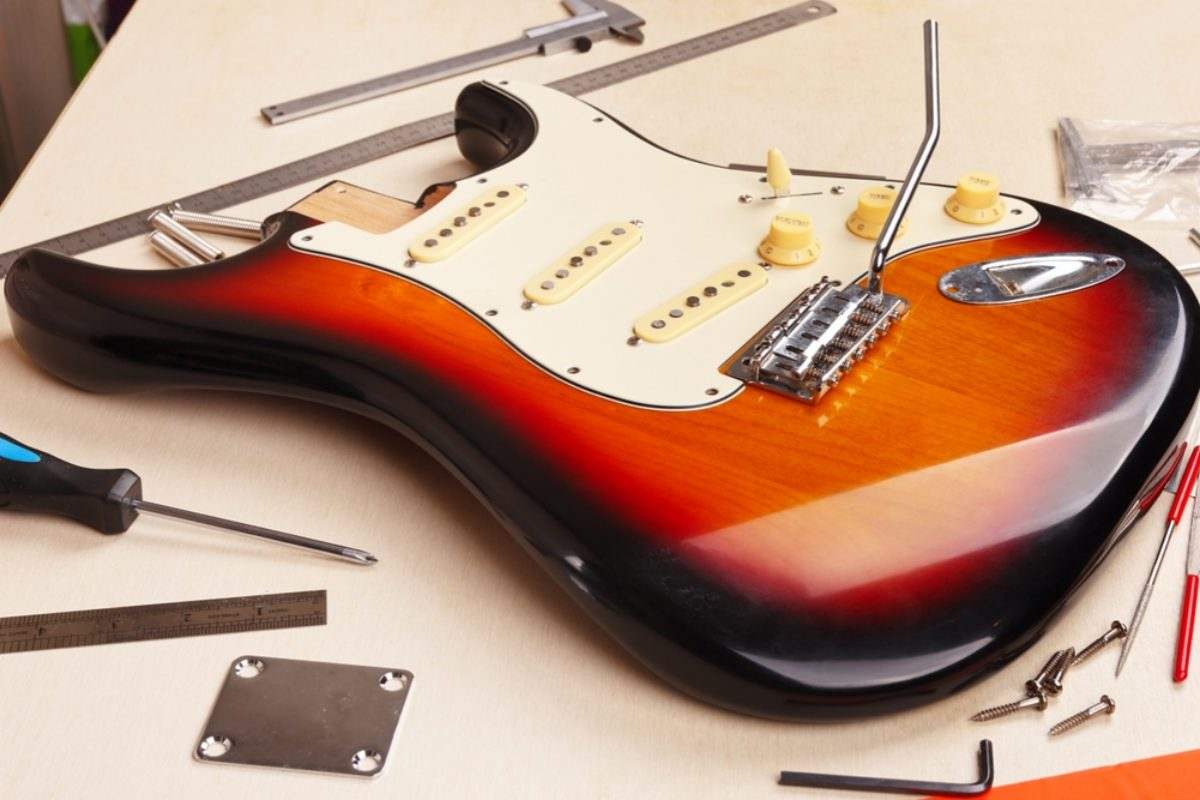Looking for an affordable way to make your bass even better? Then a quality set of aftermarket tuners will not only improve the feel, and tuning stability, but also the tone of your instrument.
Tuners are often overlooked as just being functional, but they are one of the most important pieces of hardware on your instrument. Your bass may have a silky smooth neck, fantastic pickups, and a quality bridge, but if it’s out of tune, you will sound awful. And good quality bass tuners are the way to ensure that it is quick and easy to get perfectly in tune, and most importantly, that it stays that way.
But which set of tuning machines should you choose, and why? Well, it’s time to find out as I guide you through everything you ever wanted to know about bass tuners. Let’s start with the very basics…
What Are Bass Tuners and Why Are They Important?
The headstock of your bass usually has four metal objects on it which you thread your strings through. These are the bass tuners (or bass tuning pegs, machine heads, or tuning machines as they are also known). There is one tuner per string and they are used to ensure accurate bass guitar tuning, raising or lowering the pitch of each string depending on which way the key of the tuner is rotated.

What Are Detuners?
Some tuners also include a detuner function which is a small lever that will instantly drop or raise one of the strings to a preset pitch, such as from E down to D. These are a superb option for bassists performing live who use standard and dropped tunings.

Features and Types of Bass Tuners
Let’s now take a look at the most common features of different styles of tuners, starting with…
Headstock Tuner Layout
You need to buy a replacement set of bass tuning pegs that match the tuner layout of your headstock. You may have 4-in-a-line on either the bass or treble side of your headstock, 2+2, 3+1, or a more unusual configuration.
Materials
Most bass tuners are constructed from steel for strength, durability, and resistance to corrosion. Budget and low-priced bass guitars will have steel bass guitar machine heads but they will use low-quality steel which will not be as durable as on better-quality tuning machines. Aftermarket tuners are made using far better quality steel for a long life of precise tuning.
Some of the best bass tuners are constructed from aluminum. They are more expensive but much lighter in weight, making them an excellent choice for bass guitars that are prone to nose diving.
Or, if you want a set of bass tuning machines that are even more high-tech, how about carbon fibre, such as the GB-530T Carbon Fiber Tuning Pegs for Bass Gear ratio 1:26 from Guyker? These high-quality bass tuners are super strong, ultra-lightweight, and look fantastic!

Finishes
This is purely aesthetic and won’t affect the way your tuners function. But looks are important, especially for gigging bassists, and the cooler your bass looks, the cooler you will be!
The majority of bass tuners from most manufacturers are available in a choice of finishes, normally chrome, nickel, gold, or black. Most bassists upgrade bass tuners with the same color as the rest of their hardware. But if, for example, you are also adding an aftermarket bridge (or intend to in the near future), you can get a lot more creative and go for a new color. One of the most stylish sets of bass tuners on the market is the Guyker GK150BKGD Headstock Sealed Bass Tuners Machine Heads, which come in black and gold as opposed to most tuners which are only a single color.
Key Style
Another aesthetic choice is the style of key, which, after all, is the part of the tuning peg that the audience will see most of the time.
They are available in many different designs, such as clover leaf key, lollipop key, mini clover key, and Y key. Which one you choose is purely a personal decision!
Sealed or Open-Gear
Some tuning machines are exposed (open-gear), others are enclosed (sealed). Therefore, if you can’t see the gear, the tuners are sealed.
Sealed tuners contain grease within their metal housing which means they are always lubricated. This makes them resistant to dirt and rust, therefore they will be more durable than open-gear tuners and need next to no maintenance.
However, many popular bass guitars, especially the traditional designs such as the Fender Precision are still manufactured with open-gear tuners, and many bassists replace them with aftermarket open-gear tuners to maintain the classic look.

Gear Ratio
Many musicians tend to ignore the gear ratio of different tuners because they either don’t understand what it means or think that it can’t make that much difference. So, let’s start by explaining what it is… the gear ratio is the number of times you need to turn the tuning key to complete one rotation of the string post (the shaft that the string is threaded through).
Therefore, the higher the number, the more precisely you can tune your bass. For example, a tuning machine with a 27:1 gear ratio is more precise than one with a 22:1 ratio.
Now that’s covered, if a fellow bassist asks you “What are the Best Bass Tuners for Precision Tuning?”, you just need to tell them to go for ones with the highest gear ratio.
Bore Size
Often overlooked, get this right and it will save you a lot of time and frustration. The bore size is the size of the holes in your headstock. If your aftermarket tuners are exactly the same size, they will slot in nicely, if not, you’ll need to get the drill out which could lead to lacquer cracks or worse.
To measure the bore size of your headstock, remove one of the tuners and then carefully measure the width of the hole - it will normally be 14.3mm (9/16”) or 17.5mm (11/16”).
Why are Bass Tuners so big?
Basses tend to be larger and heavier than a standard guitar. The body is normally made from a heavy piece of wood and they feature a longer neck with a longer scale length, enabling them to achieve the low frequencies bass guitars are famous for. They also have much thicker strings than a regular guitar which puts a lot more tension on the neck. They therefore need big tuners to handle the increased tension and allow the player to get the instrument perfectly in tune.

How to Install Bass Tuners
Installing tuners on a bass guitar involves following the same relatively easy steps as on an acoustic guitar, or an electric guitar. The task is generally quite simple as long as you buy replacement bass guitar tuners that have the same bore size and the screw holes are in the exact same position as on your current tuners. The easiest way to ensure this is to buy a replacement set of bass tuners that are identical to the ones currently on your bass guitar.
However, you might not like the design or style of your current tuning machines. No problem, you can replace them with just about any bass tuners on the market. But there will probably be a lot more work involved than with direct replacement.
You may need to increase the bore size by drilling into the headstock, as well as fill any screw holes that don’t match up and do a partial re-spray if you want a perfect finish behind the headstock. Alternatively, you could take the bass and your preferred upgrade bass guitar tuning machines to a professional Luthier who will do the work for you and give you back a bass that will look as if it had its replacement tuners from new.
How to Choose the Best Bass Tuners for Your Guitar
Different types of bass tuners are better suited for certain playing styles, musical genres, and locations than others. So let's take a look at the best bass tuner options for different scenarios.
Live Performance and Heavy Touring
If you love the exhilaration of performing in front of an excited audience, then you need to go for a robust set of locking tuners that can handle new sets of strings on a regular basis.
Recording Sessions
Studio work requires 100% accurate tuning stability. The best tuners for bass guitar that provide this are high-precision, single-gear tuners.
Drop Tuning and Alternative Tunings
If you like your bass to go as low as it can go, then you need tuners with a high gear ratio (20:1 or more) for fine adjustments of very low-frequency notes.
Slap and Funk Players
If you love your funk, then you should probably look for some lightweight tuners to keep the bass well-balanced and let you get down with the music.

Top Bass Tuners You Should Consider
I have already made a number of suggestions on what type of bass tuners to buy for different applications as well as recommending a few actual products, such as the Guyker GK150BKGD Headstock Sealed Bass Tuners Machine Heads if you’re looking for a super stylish set, or the Guyker GB-530T Carbon Fiber Tuning Pegs for Bass Gear ratio 1:26 if you need a ultra-lightweight carbon fiber set of tuners with superb tuning accuracy.
If you want a simple DIY upgrade, buy a new set of the same tuners you currently have. If you’re happy to do more work, the world is your oyster, so look around and find the best tuners for your bass out there.
Wrapping It Up
That’s it, you now have all the information you need to select the best bass tuners for your bass guitar.
Adding a set of quality aftermarket tuners will dramatically improve your playing experience every time you pick up your beloved bass. You’ll be able to tune more precisely, your strings will stay in tune for longer, and you’ll get more sustain. It’s a no-brainer, so get shopping today!
If you like this article, please share it!
Be sure to join our FB Group Guyker Guitar Parts VIP Group to share your ideas! You can also have connections with like-minded guitar players, Guyker updates as well as discounts information from our FB Group.





